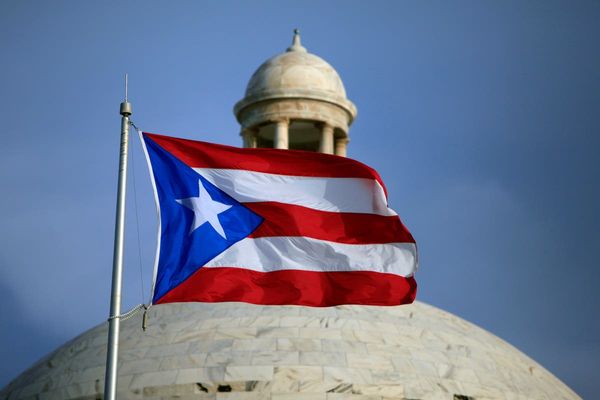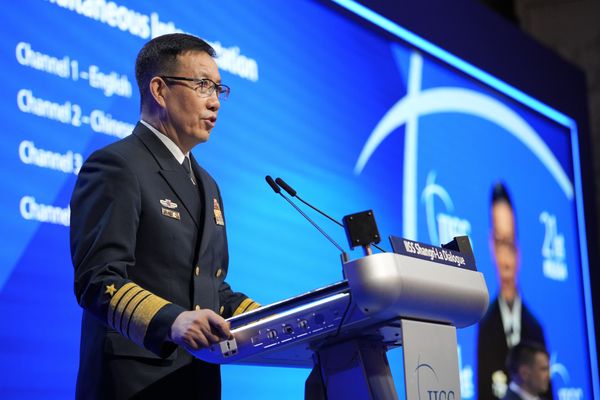Despite the promise of the Oslo accords in the early 1990s, the negotiations that followed never cemented an Israel-Palestine peace deal. What lessons do they hold for the future?
In the third and final part of Inside the Oslo Accords, a special series from The Conversation Weekly podcast, we assess the legacy of the Oslo peace process, 30 years on. And we ask two insiders to the negotiations: Palestinian political and civil society leader, Hanan Ashrawi, and Israeli former deputy foreign minister and minister of justice, Yossi Beilin, what future they see for the two-state solution.
The series is hosted by James Rodgers, Reader in International Journalism and Amnon Aran, Professor of International Politics, both at City, University of London in the UK.
The goal of the Oslo peace process was an eventual separate Palestinian state, alongside Israel, known as the two-state solution. Now, 30 years on, one of the key Israeli negotiators during the Oslo process, Yossi Beilin, tells us that this has become “much more difficult to achieve” because of the large increase in the number of Israeli settlers living on the West Bank on land Palestinians say should be part of a future Palestinian state.
“The issue of evacuating all the settlements on the eastern side of the border is becoming the biggest hurdle on the way for peace,” says Beilin.
Today, if somebody says I’m still for the two-state solution, I say, ‘Thank you very much. But what does it mean? You really believe that an Israeli prime minister will take it upon himself or herself to evacuate so many people?’
Instead, Beilin argues for a loose confederation that would allow “all those settlers who would like to remain in the Palestinian state” to do so, and become both permanent residents of Palestine and citizens of Israel. In return, he suggests that the same number of Palestinian citizens would be allowed to live in Israel under the same legal status.
A new dynamic
Palestinian former negotiator Hanan Ashrawi is also sceptical about the future of a two-state solution. “If you look at the reality on the ground, it would take a very large grain of salt to believe that the two-state solution is viable,” she says, because of the amount of land now occupied by Jewish settlements and the lack of international action to prevent it.
However, Ashrawi believes a new dynamic is emerging among both Israelis and Palestinians and that “we are at the beginning of a new transition”.
“In Palestine, the whole rationale and logic and discourse of negotiated settlement and all you need to do is be nice and play the American, European game and you’ll be OK – this has gone, nobody believes in that anymore,” she says. “The nature of our system of governance is shifting, and the young people are talking only about our rights, our freedom and ending the occupation.”
Pointing to the recent pro-democracy protests in Israel and the political power the settler movement now has in Israeli politics, Ashrawi argues that “the chickens are coming home to roost”.
It’s the whole settler system and the violence and dehumanisation and the total disregard for human rights that are taking over, and they are being practised within Israel. And this is what is awakening Israeli public opinion.
Listen and subscribe to The Conversation Weekly for the full episode and the rest of the Inside the Oslo Accords series.
A transcript of this episode will be available shortly.
This episode was produced by Mend Mariwany with assistance from Katie Flood. Gemma Ware is the executive producer of The Conversation Weekly. Eloise Stevens does our sound design, and our theme music is by Neeta Sarl.
You can find us on X, formerly known as Twitter, @TC_Audio, on Instagram at theconversationdotcom or via email.
Newsclips in this episode from AlJazeera English, DW News and BBC News.
Listen to The Conversation Weekly via any of the apps listed above, download it directly via our RSS feed or find out other ways to listen.
The authors do not work for, consult, own shares in or receive funding from any company or organisation that would benefit from this article, and have disclosed no relevant affiliations beyond their academic appointment.
This article was originally published on The Conversation. Read the original article.







